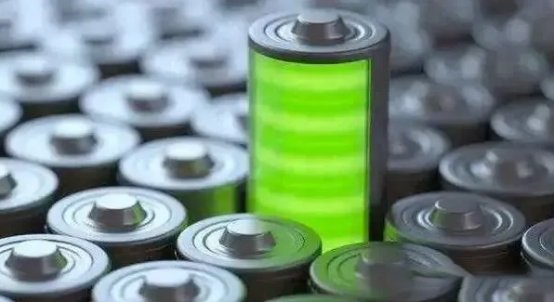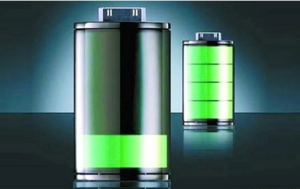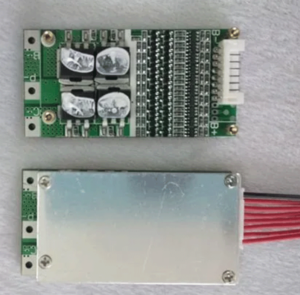During the manufacturing process of lithium batteries, electrolyte is an important component of lithium batteries, and its performance directly affects the energy density, charge and discharge performance, and safety of lithium batteries. Therefore, studying the preparation process of lithium battery electrolyte is of great significance for improving the performance of lithium batteries and promoting their application. This article will discuss in detail the preparation process of lithium battery electrolyte.
1. Types and characteristics of electrolytes
Electrolyte is the medium that transfers ions in lithium batteries, and its performance directly affects the charge and discharge performance and safety of the battery. Currently, commonly used electrolytes are mainly divided into two categories: organic electrolytes and inorganic electrolytes. Organic electrolyte has high ionic conductivity, but it is flammable and explosive and has a certain impact on the environment; while inorganic electrolyte has good thermal stability and chemical stability, but its ionic conductivity is low. Therefore, when preparing electrolyte, it is necessary to select the appropriate formula and process according to actual needs.
2. Preparation process of electrolyte
1. Physical mixing method
The physical mixing method is a simple and commonly used method for preparing electrolyte. It mainly mixes electrolyte salts, solvents and other raw materials according to a certain proportion and stirs them evenly. Then, the electrolyte can be obtained through post-processing such as filtration and degassing. This method has the advantages of simple process and low cost, but the performance of the prepared electrolyte may not be stable enough.
2. Co-melting method
The eutectic method is a method in which raw materials such as electrolyte salt and solvent are melted by heating, and then cooled and solidified to obtain an electrolyte. The electrolyte prepared by this method has high ionic conductivity and stability, but the process is complicated and the cost is high.
3. Chemical synthesis method
Chemical synthesis is a method of converting raw materials into electrolyte salts or solvents through chemical reactions. The electrolyte prepared by this method has high purity and excellent performance, but the process is complex and the cost is high.
3. Performance indicators and test methods of electrolyte
1. Conductivity
Conductivity is an important indicator to measure the ability of electrolyte to transport ions, and its size directly affects the charge and discharge performance of lithium batteries. Commonly used testing methods include conductivity meter method and cyclic voltammetry.
2. Flash point
Flash point is an important indicator to measure the flammability of electrolyte, and its level directly affects the safety of lithium batteries. Commonly used testing methods include closed cup flash point tester method and open cup flash point tester method.
3. Viscosity
Viscosity is an important indicator to measure the fluidity of electrolyte, and its size directly affects the diffusion and penetration ability of electrolyte in the battery. Commonly used testing methods include rotational viscometer method and falling ball viscometer method.
4. Stability
Stability is a measure of the ability of an electrolyte to maintain its performance during storage and use. Commonly used test methods include long-term storage test and high-temperature storage test.
4. Precautions
In the process of preparing lithium battery electrolyte, you need to pay attention to the following points:
1. Storage and use environment: Electrolyte is harmful and has a strong irritating effect on the eyes, skin and respiratory tract. Therefore, when storing and using electrolyte, keep it well ventilated and away from open flames and heat sources. At the same time, the electrolyte should be stored in a cool, dry, well-ventilated place, away from direct sunlight and near heat sources.
2. Operating specifications: Operators should receive professional training and be familiar with the properties and operating procedures of the electrolyte. During the operation, appropriate personal protective equipment should be worn, such as chemical protective glasses, chemical protective clothing, chemical protective gloves, etc. At the same time, avoid contact between the electrolyte and skin and eyes, and avoid inhaling the gas generated by the electrolyte.
3. Preparation and mixing process: During the process of preparing and mixing the electrolyte, the formula and operating procedures should be strictly followed, and attention should be paid to uniform mixing to avoid the generation of sediment. At the same time, avoid splashing of electrolyte to prevent accidents.
4. Waste liquid treatment: The used electrolyte should be treated as waste liquid in accordance with relevant regulations and should not be dumped or discharged at will. Waste liquid should be stored in a special waste liquid collection container and handed over to a qualified professional waste liquid treatment company for treatment.
5. Safety measures: During the process of preparing electrolyte, necessary safety measures should be taken, such as using explosion-proof equipment, installing emergency eye washers and showers, etc. At the same time, it is necessary to regularly check whether the electrolyte storage and use equipment is intact, and any hidden dangers should be dealt with promptly.
In short, during the process of preparing lithium battery electrolyte, operating procedures and safety measures should be strictly followed to ensure personnel safety and environmental safety. At the same time, it is necessary to select appropriate raw materials and formulas, and adopt advanced preparation processes and technologies to improve the performance and quality of the electrolyte.
5. Conclusion and outlook
With the rapid development of electric vehicles, mobile devices and other fields, the demand for lithium batteries is increasing, and the requirements for their performance are also increasing. Therefore, studying high-performance electrolyte preparation processes is of great significance to promote the development of lithium batteries. In the future, with the continuous emergence of new materials and the continuous improvement of preparation processes, we believe that we will be able to prepare higher-performance and safer lithium battery electrolytes and make greater contributions to the sustainable development of human society.




